Sholem Aleichem’s son-in-law’s search for Jewish writers in Kyiv
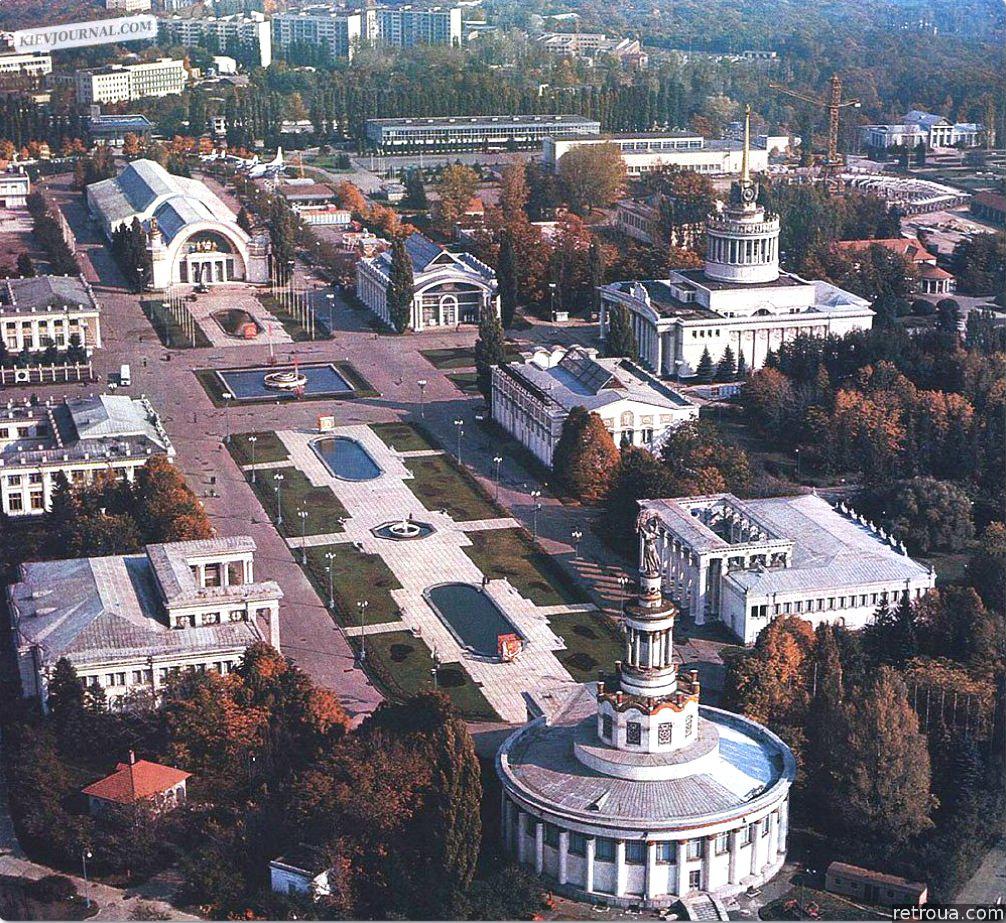
“I sat down and began thinking about Jews and Ukrainians. About Ukrainians, who so extolled Ukraine to me, and about Jews, who are afraid of answering a telephone call from a Jews. And Tevye’s words came to me: ‘Ah, God, my brother, why do you press so hard on your Israeli people?’” [Trans. by Marta D. Olynyk]
Ben-Zion Goldberg was a distinguished Jewish journalist and writer, who was born in Olshan, near Vilnius. He came to the U.S. when he was a small boy and later graduated from Columbia University.
He wrote novels and articles on political and sociological topics. He is the author of The Jewish Problem in the Soviet Union: Analysis and Solution. His journalistic activities were wide-ranging: he was the foreign correspondent of the St. Louis Post-Dispatch and the Toronto Star, and a columnist for the Brooklyn Daily Eagle.
For fifteen years he was editor-in-chief of the New York-based Jewish daily Jewish Morning Journal [Tog-morgn zhurnal]. He visited the Soviet Union three times and wrote numerous reports about his trips to that country.
Goldberg was the son-in-law of the famous Jewish writer from Ukraine Sholem Aleichem. Istorychna Pravda is publishing one of his reports that appeared in the Jewish Morning Journal as well as in Ukrainskyi samostiinyk [Ukrainian Independentist], nos. 59–60, 1960]. It was translated, with special permission, by Joseph Schwartz. The original translation [Except where noted otherwise—Ed.] and the footnotes have been retained.
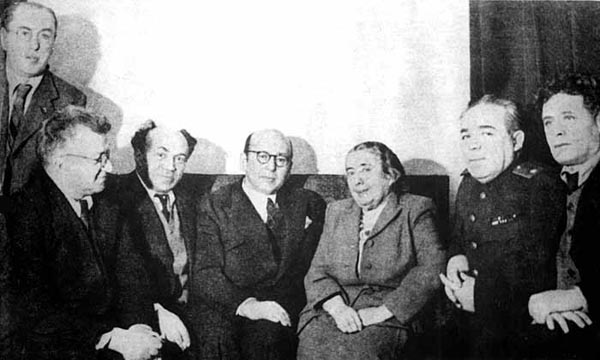
About Kyiv in general
This was my third visit to Kyiv. The first time I was there was 25 years ago, and the second time—30 years ago. Kyiv will forgive me if I write little about it. Everything that was rebuilt or built in Kyiv is beautiful.
Today Khreshchatyk, which was always the main street, has a nice, wide boulevard, nice shops on one side, and huge buildings on the other. I saw Khreshchatyk when it was a huge pile of rocks and bricks; that’s why I was amazed to see everything rebuilt.
It should be emphasized that in other parts of the city everything was rebuilt in the same style as earlier. Nevertheless, I must also mention the side streets that were not damaged during the war and where the buildings have aged and appear neglected.
The agricultural exhibition outside the city made one of the best impressions on me. Nice pavilions spaciously laid out, planted with trees, and decorated with flower beds. Everything that is produced in Ukraine, from live cows and bulls to embroideries, is displayed in these pavilions. On the walls hang diagrams and numbered data. This exhibition is not for buyers and not for foreign tourists. It is designed for farmers.
Collective farms send delegations to the exhibition, where they are shown everything that is produced on collective farms. All sorts of specialists, with the aid of all these products and diagrams, show them that they can produce more with less work.
Now you will see how rich Ukraine is. And it cannot be said that I envy Ukrainians; on the contrary, I wish them success and health.
True, Jews have scores, old and new, to settle with Ukrainians, and no one will say even today that all Ukrainians like Jews. But one must be careful in settling scores between peoples. In placing minus signs, one should not forget the pluses, and the future should not be blackened with the ink of the past.
Khmelnytsky, Petliura, and Vlasov [Both the editor of Ukrainskyi samostiinyk as well as the editorial board of Istorychna Pravda questioned why the author mentions Andrei Vlasov, who was not Ukrainian but a Russian Red Army general who defected to Nazi Germany—Ed./Trans.]—they and their Ukrainian soldiers shed quite a lot of Jewish blood. Many Ukrainians collaborated with Hitler and helped the Nazis to exterminate Jews.
But one must also remember those Ukrainians who saved Jews from the Nazi concentration camps. And it cannot be forgotten that Jews have lived in Ukraine for centuries, and even today around a million Jews live in Ukraine.
Now, as I was told by one Jew in Odesa, you can no longer hear the phrase zhidovskaia morda [Jewish mug]. “At one time people spat in our faces, but now this no longer permitted…and maybe it will never be permitted again.”
I was not able to have proper peace in Kyiv when I was staying at the same hotel as thirteen years ago because opposite the hotel stood the same building of the Ukrainian Academy of Sciences, where I had visited the Institute of Jewish Culture. I brought with me my notes from that visit.
At the time, the Jewish Institute was an independent division of the Ukrainian Academy of Sciences. It occupied four rooms, had a staff of sixteen people, and a specialized library of 5,000 books.
The Institute studied the Jewish language and Jewish folklore. My notes, which I made at the time, mention “Jewish Syntax from Eiger to Perets.” “Jewish Historical Grammar, “ “A Collection of Jewish Music.” The works of Jewish composers were ready for publication.
Not a trace of this remains. Spivak the director disappeared. Others—I had their names… but why write about them? who knows if they would want this. This was the same Kyiv where the poet Dovid Hofshteyn (one of the liquidated ones) brought me to Ukraine’s Minister of Education, the distinguished poet Pavlo Tychyna, who had translated Hofshteyn’s songs into Ukrainian.
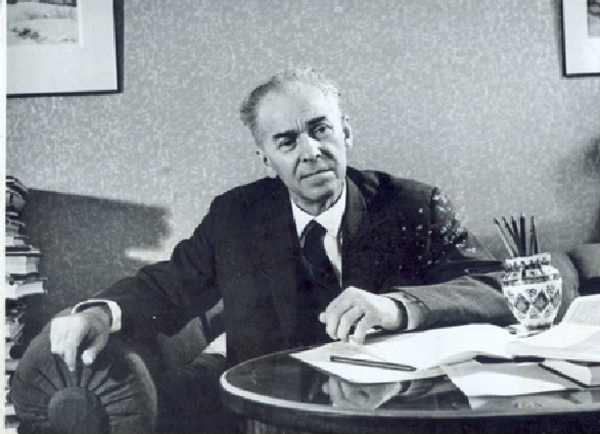
Pavlo Tychyna is no longer a minister. He is an old man; perhaps he was removed? However, he’s living out his life freely, but where is Hofshteyn now? I became heavy-hearted in Kyiv. I spent time with poor Jews in a synagogue, and they were afraid to tell me that this year they had been left without matzo for Passover: there was no place to bake it. It is the first time this has happened.
Perhaps, the reason behind this was insignificant, I don’t want to contemplate this; but why did the Jews not tell me about this, when they were telling me about so many other things? One Jews warned me:
“You are devoting too much time to the Jewish element near the synagogue. This is not the typical segment of Jews. These are old-fashioned Jews, who live according to old, prerevolutionary ideas; these are yesterday’s Jews; in other words, probably not tomorrow’s Jews.”
“Good,” I said to him. “Let’s leave it at that, but show me where these typical Jews are, the Jews of today and tomorrow. I don’t know their addresses, and it’s not right to ask on the street.”
I went by taxi, whose driver looked to be a Jew. I asked him if he was a Jew. “No,” he replied. “Why do you ask?” Now I was sure that he was a Jew because otherwise he would not have replied ‘Why do you ask?’ I said to him:
“I am asking you because I myself am a Jew from America,” and I began talking about something else. Later he said; “You’re not wrong, my mother was Jewish,” and he showed me a photograph of her. “She was exterminated by the Nazis, but my father was a Christian,” he added without any great conviction. Was he a representative of the typical element among the local Jewry?
On the way to the airport I asked my Intourist guide what was happening in Babyn Yar, the place where the Germans had executed the Jews of Kyiv and neighboring towns. I saw this horrible place thirteen years ago. Jews were forced to dig pits and were then shot during the work near those pits and were covered with sand. I wanted to know whether a monument had been erected to them.
She said, “The pit was filled in, and only two small boards with inscriptions stand there.” After this reply I no longer wanted to visit the dead.
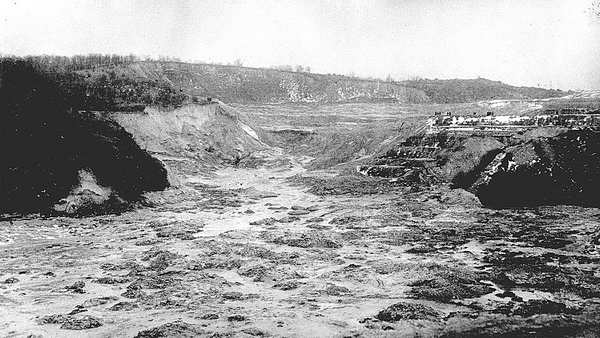
At the Writers’ Union
I asked the girl from Intourist to telephone the Writers’ Union of Ukraine because through them I wanted to contact three Jewish writers of whom I was aware. As I had written in an earlier article, today there are no obstacles for citizens of the Soviet Union to meet with people from abroad, especially from the same profession. And people are not grabbed for nothing there, and they are not arrested like before.
However, you don’t know with whom you are speaking. There are people who are convinced that “it is permitted now,” and they feel unfettered in conversation. There are also those who are still not convinced of this because they have not freed themselves of their former fear or from the terrible experiences that they went through and are still afraid. I will not criticize them for this. I adhere to the Talmudic principle, “Do not judge your fellow until you have reached his place.”
The girl from Intourist soon let me know that they were waiting for me at the Writers’ Union at 2:00. “It’s too early,” I thought. I arrived on time and received a heart-felt welcome.
Ivan Honcharenko, the secretary of the Writers’ Union, welcomed me, not like an old friend, but like his own brother who had come from distant lands. He summoned a few more Ukrainian writers: Mykola Upenyk, the editor of a Ukrainian journal that publishes translations from foreign languages; Borys Burkatov, the editor of Literaturna hazeta [Literary Ukraine], which comes out twice a week; and Yukhym Martych, the deputy editor of some literary newspaper that appeared to be Jewish; I wrote their first names and surnames on a pack of Ukrainian cigarettes that they gave me.
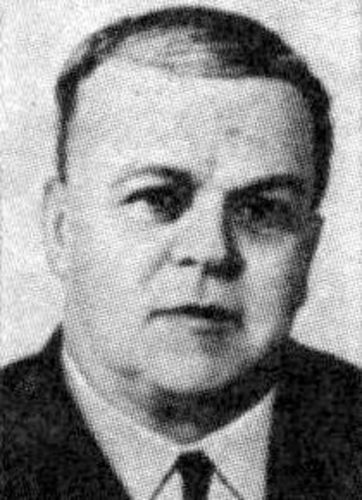
At first we talked about literature, about writers in Ukraine, old and young. The Union has 531 members, but it does not include all the writers in Ukraine. Many have not matured yet in their profession to the extent of becoming a member of the Union. Fees are identical throughout the Soviet Union.
Then we moved to another room, where a table was laid with a variety of delicacies, and all of it was Ukrainian in origin. This was emphasized by Honcharenko. Wine from Ukrainian grapes and made in Ukraine; cigarettes from tobacco that grows in Ukraine; chocolate from sugar made from beets that grow in Ukraine, etc.
I told them a bit about American Ukrainians. Meanwhile, we sipped wine slowly. We even talked about personal matters, children and grandchildren, and when I told them that I will soon have a grandchild, everyone drank a toast to this grandchild. What can be more sincere and more friendly?
It was very pleasant for me to spend time with my colleagues—Kyivan writers. And even though my words will not reach them, I still would like to express here my sincere gratitude for the hospitable reception. If all Ukrainians and all non-Jews were like them, would we have a Diaspora?
But I was still counting on seeing those three writers whom I wanted to meet. Ivan Honcharenko told me that one of them is now in Moscow, at a writers’ congress. The second one couldn’t be reached by telephone, but the third one was supposed to arrive shortly.
I thought: even one will be good. We are sitting and discussing Sholem Aleichem. When Tevye the Dairyman was staged, the press wrote that Shlomo Mikhoels gave the finest performance of Tevye.
Mykola Upenyk, who also had a clearly Jewish face, told me that the famous Ukrainian writer [Oleksander] Korniichuk, whose plays are staged with great success in the Russian language, too, once planned to write a plan called “Ivan and Leiba,” in order to demonstrate the friendship between Jews and Ukrainians. When he informed Mikhoels about this, Mikhoels said that he could perform both roles: Ivan and Leiba.
We parted sincerely.
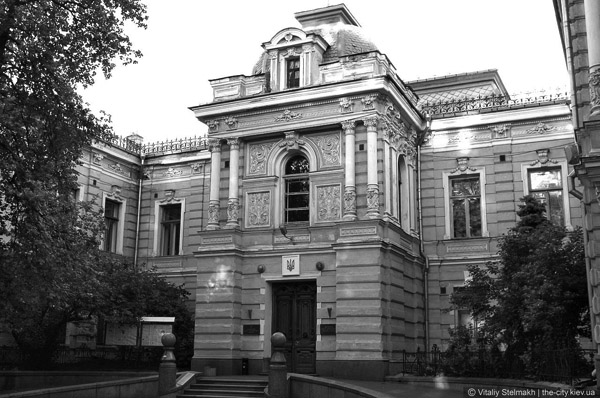
But I never ended up meeting with that lone Jewish writer. Upon arriving at the hotel, I found his telephone number. I thought that if he had already been informed by the Writers’ Union, then I could call him.
I call. A woman replies, speaking Russian. I say the writer’s surname and ask whether he’s at home. “Yes, he’s at home,” she replies. “Who’s calling?” But out of habit I blurted out “mister,” and this wrecked my undertaking.
“This is likely a mistake,” she replied. “You’re probably looking for someone else with the same surname.” “Yes,” I said, “it’s probably someone else,” and I hung up the receiver.
I sat down and began thinking about Jews and Ukrainians. About Ukrainians, who so extolled Ukraine to me, and about Jews, who are afraid of answering a telephone call from a Jews. And Tevye’s words occurred to me: “Ah, God, my brother, why press so hard on your Israeli people? [Trans. Marta D. Olynyk]
Source: Ukrainskyi samostiinyk, nos. 59–60, 1962.
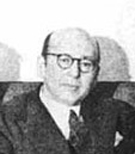 Ben-Zion Goldberg
Ben-Zion Goldberg
28.09.2018
Ben-Zion Goldberg (Benjamin Waife), b. 9 January 1894, Olshan, Vilnius gubernia–d. 29 December 1972, Tel Aviv, Jewish journalist and writer.



















